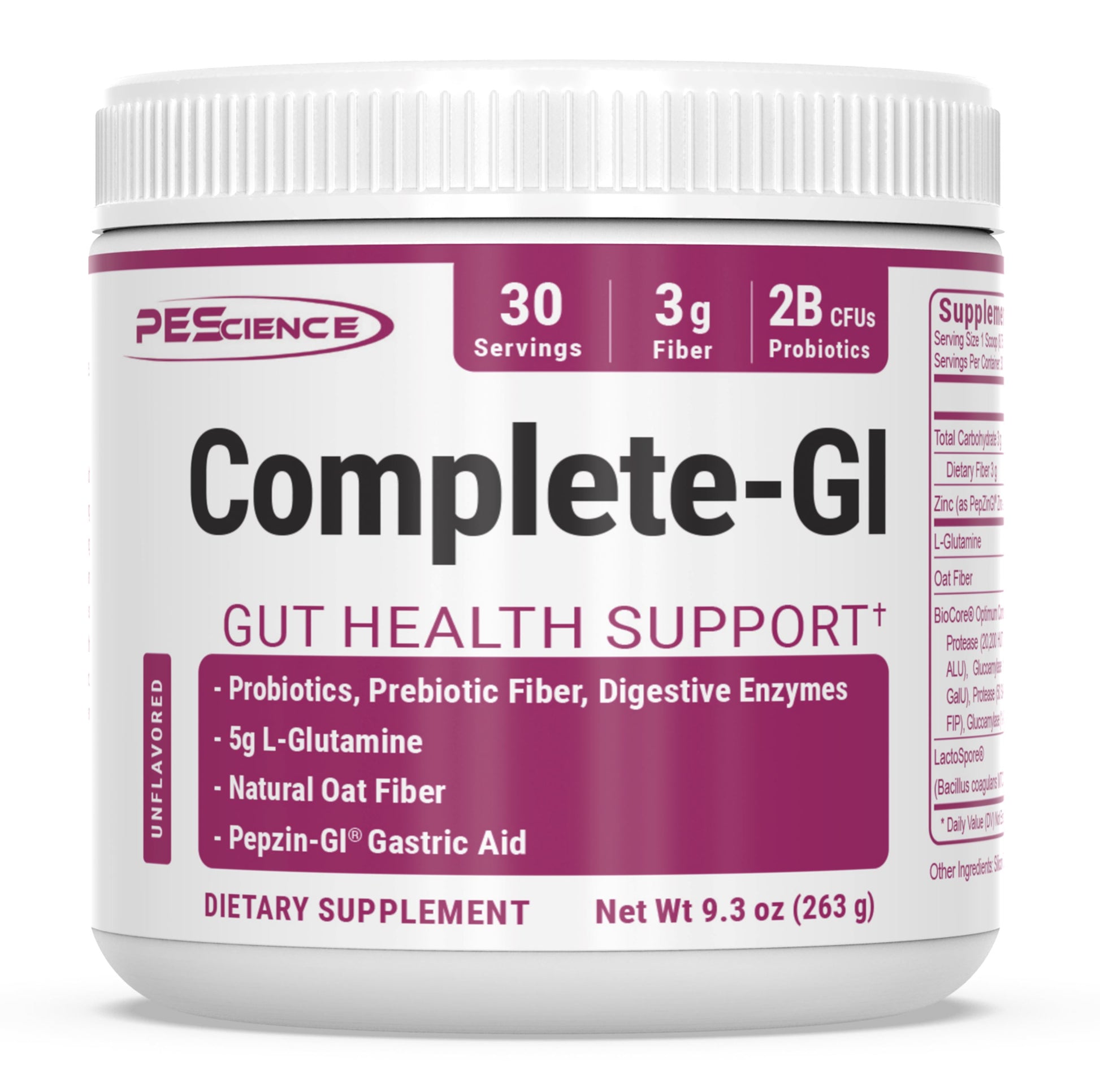Discovering the Causes and Effects of Intestine Issues and the Duty of Gut Health And Wellness Supplement
Gut health is a vital element of overall wellness. Poor dietary options, stress, and inequalities in gut germs can lead to numerous gastrointestinal problems. Signs and symptoms such as bloating, diarrhea, and stomach discomfort usually indicate deeper wellness concerns. Understanding these reasons and the potential role of digestive tract health and wellness supplements might offer important understandings. What approaches can be utilized to bring back equilibrium and enhance intestine function? The responses might exist in the next actions.
Understanding the Gut Microbiome
The intestine microbiome, a complex community of trillions of bacteria staying in the digestive system system, plays a necessary role in total health and wellness. This diverse neighborhood contains germs, viruses, fungi, and various other microorganisms that connect symbiotically with the human host. They help in the digestion of food, the synthesis of vitamins, and the law of metabolism. The digestive tract microbiome substantially affects the immune system, aiding to shield versus microorganisms and keep a balanced inflammatory feedback. Research study suggests that a healthy microbiome is vital for psychological wellness, with gut-brain interactions influencing state of mind and habits. Factors such as diet, lifestyle, and ecological direct exposures can form the make-up of the microbiome, emphasizing the importance of preserving a well balanced diet plan rich in fiber and probiotics. Recognizing this detailed ecological community uses understandings right into how digestive tract wellness can influence overall physical and mental well-being, highlighting its relevance in health and wellness management.
Common Root Causes Of Digestive System Problems
Numerous factors can add to digestive concerns, specific usual causes often disrupt intestine wellness. Poor nutritional choices, such as high sugar and processed food consumption, can bring about imbalances in intestine bacteria. Furthermore, inadequate fiber consumption can prevent digestion and promote bowel irregularity. Stress and anxiety is another substantial factor, as it can change gut feature and worsen status quo. In addition, absence of physical activity might reduce the gastrointestinal system, creating discomfort and bloating.
Infections, including bacterial, viral, or parasitic agents, can likewise set off gastrointestinal disruptions. Food intolerances and allergies, specifically to gluten and lactose, generally lead to gastrointestinal discomfort. The abuse of prescription antibiotics can disrupt the all-natural microbiome, leading to more problems. Recognizing these usual reasons is necessary for people seeking to boost their digestive tract wellness and general well-being.
Recognizing Signs And Symptoms of Digestive Tract Problems
Identifying signs of gut problems can be essential for prompt treatment and improved health. People experiencing intestinal discomfort should know a number of common indicators that suggest underlying concerns. Signs may consist of bloating, gas, diarrhea, irregularity, and stomach discomfort. These symptoms can vary in strength and regularity, frequently showing the severity of the intestine problem. Additionally, some people may see unexpected weight loss, exhaustion, or changes in hunger, which might signal an extra significant problem. Skin issues, such as rashes or acne, might likewise emerge, linking intestine health to general health. Notably, persistent signs must not be disregarded, as very early acknowledgment can promote effective treatment and stop more difficulties. A comprehensive understanding of one's physical signals is vital, allowing people to look for clinical advice when necessary and potentially causing far better health outcomes with appropriate treatments.
The Influence of Diet Regimen on Gut Health And Wellness
Diet regimen plays an important function in establishing gut health, affecting both microbial equilibrium and digestion performance. Nutrient-rich foods can advertise a healthy and balanced gut environment, while processed foods might result in imbalances and digestion concerns. Recognizing these nutritional influences is crucial for keeping total gut health and wellness.
Nutrient-Rich Foods
While many aspects affect intestine health, the function of nutrient-rich foods can not be overemphasized. A diet plan plentiful in entire foods, such as fruits, vegetables, whole grains, lean proteins, and healthy and balanced fats, adds greatly to keeping a balanced gut microbiome. These foods offer necessary vitamins, minerals, and antioxidants that support digestive wellness and lower inflammation. Fiber-rich choices, especially, advertise normal defecation and nurture helpful intestine bacteria, boosting overall intestine feature. Probiotic-rich foods like yogurt and fermented veggies even more sustain intestine plants, helping digestion. Including a selection of nutrient-dense foods not just promotes a healthy and balanced intestine atmosphere but additionally enhances the body immune system, contributing to total wellness. Focusing on these foods can cause enhanced digestive tract health and avoid possible problems.
Refined Food Consequences
The consumption of refined foods can significantly weaken intestine wellness, counteracting the benefits of nutrient-rich alternatives. These foods are usually high in ingredients, preservatives, and sugars, which can disrupt the balance of digestive tract microbiota. A diet abundant in processed items has a tendency to lack crucial nutrients, resulting in shortages that endanger digestive system function. In addition, extreme sugar and undesirable fats can promote swelling and add to problems like short-tempered digestive tract disorder (IBS) and leaky gut disorder (supplement for bloating). This inequality might lead to signs and symptoms such as bloating, pain, and gas. Furthermore, the reduced fiber web content in refined foods reduces digestive wellness by restricting the development of useful bacteria. Eventually, a change in the direction of whole, unprocessed foods is important for preserving ideal digestive tract function and overall health
Just How Tension Affects Digestion
Stress and anxiety significantly influences digestion by activating a waterfall of physical actions that can interrupt normal stomach function. When a private experiences tension, the body gets in a fight-or-flight mode, releasing hormonal agents such as cortisol and adrenaline. These hormones can decrease food digestion by lowering blood circulation to the digestive system organs, bring about signs and symptoms such as bloating, diarrhea, or irregularity.
Additionally, stress can change the gut microbiome, adversely affecting the balance of advantageous microorganisms. This discrepancy can intensify existing gut issues or produce brand-new ones. In addition, stress often brings about undesirable consuming routines, such as overindulging or consuming refined foods, which can better compromise gastrointestinal wellness.
Psychological aspects, such as stress and anxiety and depression, can additionally add to stomach pain, click site creating a feedback loophole that bolsters digestive tract concerns. Therefore, understanding the elaborate relationship in between tension and digestion is crucial for maintaining general digestive tract health and wellness.
The Function of Digestive Tract Wellness Supplements
Gut health supplements play a considerable duty in enhancing digestive feature and total wellness. Trick components, such as prebiotics and probiotics, are essential for maintaining a well balanced gut microbiome. Comprehending the benefits and components of these supplements can aid individuals in making informed choices for their gastrointestinal health.
Benefits of Gut Supplements
A flourishing gastrointestinal system is crucial for total wellness, and intestine wellness supplements can play a considerable duty in accomplishing this balance. These supplements usually consist of probiotics, prebiotics, and different nutrients that support digestive feature and promote a healthy and balanced digestive tract microbiome. By improving the development of beneficial microorganisms, they can boost digestion, minimize bloating, and relieve pain connected with stomach issues. In addition, intestine supplements may strengthen the gut obstacle, potentially reducing the threat of food sensitivities and inflammatory conditions. Routine usage can also add to boosted nutrient absorption, energy levels, and also psychological well-being, as digestive tract health is closely connected to mood regulation. Eventually, including digestive tract wellness supplements can be a tactical technique to keeping digestive harmony and general wellness.

Key Active Ingredients to Take Into Consideration
When selecting gut health supplements, understanding the essential active ingredients is important for maximizing their benefits. Probiotics, specifically Lactobacillus and Bifidobacterium stress, are vital as they help recover a well balanced intestine microbiome. Prebiotics, such as inulin and fructooligosaccharides, work as food for these valuable germs, advertising their growth. Gastrointestinal enzymes, consisting of amylase and protease, assist in damaging down food, boosting nutrition absorption. In addition, fiber sources like psyllium husk support routine bowel movements and total gut health and wellness. Other valuable components might consist of L-glutamine, which assists out of commission gut lining, and zinc, known for its immune-supporting buildings. Selecting supplements with these vital elements can significantly boost digestive tract wellness and overall health.
Tips for Keeping a Healthy Intestine
Maintaining a healthy gut is necessary for total wellness, as it plays an important function in resistance, food digestion, and nutrient absorption. To sustain digestive tract health, people should prioritize a balanced diet plan rich in fiber from fruits, veggies, and entire grains. These foods advertise valuable bacteria in the gut. Furthermore, including fermented foods such as kefir, sauerkraut, and yogurt can improve intestine flora diversity. Staying moisturized is likewise crucial, as adequate water consumption aids digestion and nutrient transport.
Routine exercise contributes to gut health and wellness by advertising reliable digestion and decreasing stress and anxiety, which can negatively affect intestine function. In addition, taking care of tension via mindfulness techniques like reflection or yoga exercise can also support intestine health. Lastly, staying clear of excessive use of prescription antibiotics and limiting processed foods, sugars, and undesirable fats can cultivate a balanced digestive tract atmosphere. By embracing these practices, individuals can considerably boost their gut health and general health.
Regularly Asked Inquiries

Can Intestine Health And Wellness Impact Mental Wellness and Mood Stability?
Study suggests a significant web link between digestive tract health and psychological wellness. The intestine microbiome can influence state of mind stability and psychological health, suggesting that preserving a healthy and balanced gut might add favorably to emotional strength and cognitive feature.
Are There Particular Foods to Stay Clear Of for Better Intestine Health And Wellness?
Particular foods can negatively impact intestine health, consisting of processed sugars, sweetening agents, and high-fat milk items. Lowering these things might boost digestion function and advertise a healthier gut microbiome, bring about on the whole far better health and wellness.
For how long Does It Consider Gut Health Supplements to Program Consequences?
The duration for intestine health and wellness supplements to show impacts varies amongst people. Normally, visible adjustments might happen within a couple find out here now of weeks, however some people might call for a number of months for optimal results, relying on their distinct health and wellness conditions.
Can Children Experience Digestive Tract Issues Comparable to Grownups?

Youngsters can experience intestine concerns similar to adults, including pain, bloating, and uneven defecation (supplement for bloating). Variables such as diet regimen, stress, and infections might add to these troubles, making recognition and monitoring essential for their health
What Are the Long-Term Effects of Neglected Digestive Tract Troubles?

Fiber-rich choices, particularly, advertise normal digestive tract motions and nourish valuable intestine germs, improving overall gut function. A growing digestive system is crucial for general health, and intestine wellness supplements can play a considerable role in attaining this equilibrium. In addition, gut supplements may strengthen the gut obstacle, possibly minimizing the risk of food sensitivities and inflammatory problems (supplement for bloating). Routine physical task contributes to intestine wellness by advertising reliable food digestion and minimizing stress and anxiety, which can detrimentally influence intestine feature. Certain foods can adversely affect digestive tract health and wellness, including refined sugars, synthetic sugar, and high-fat dairy items